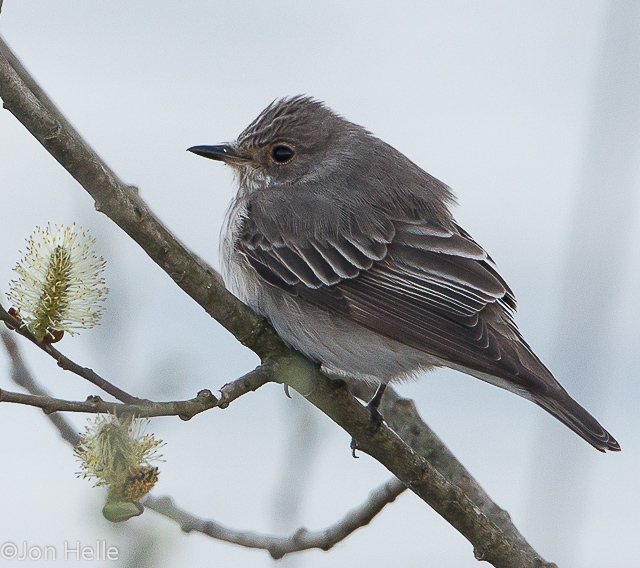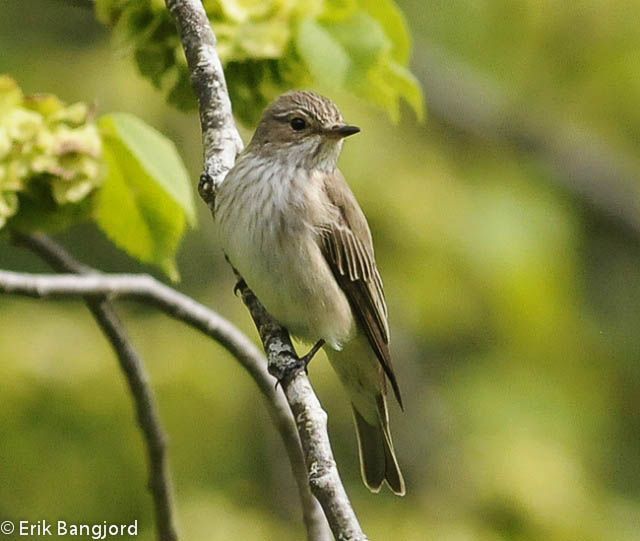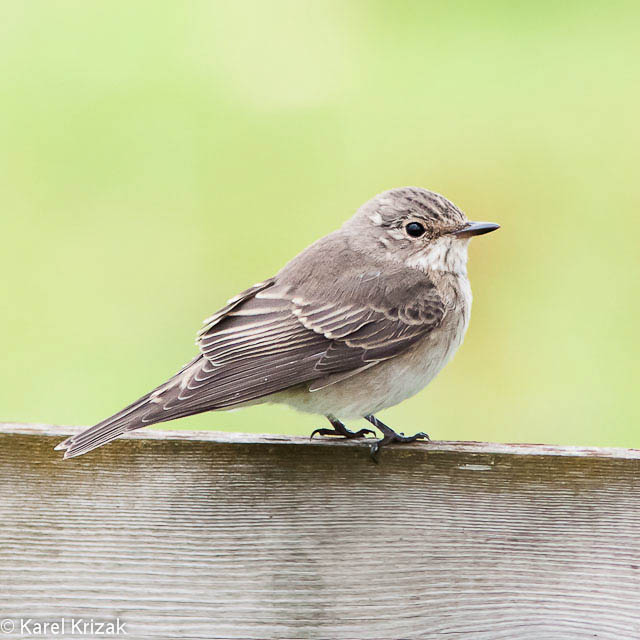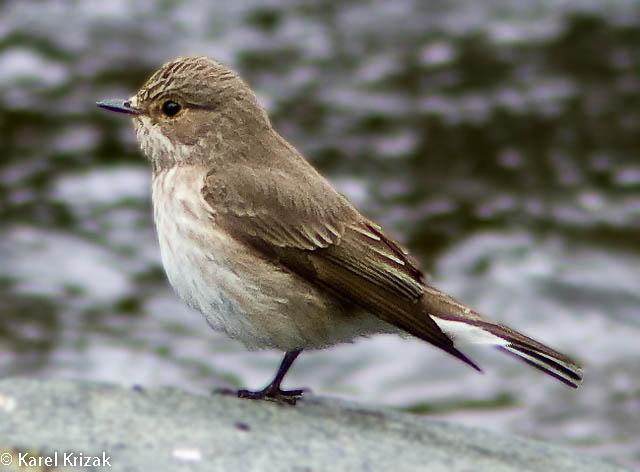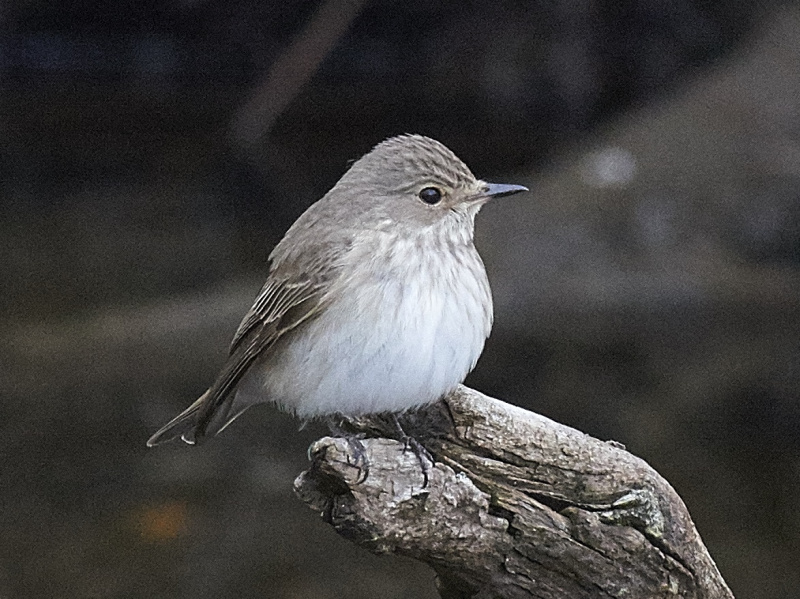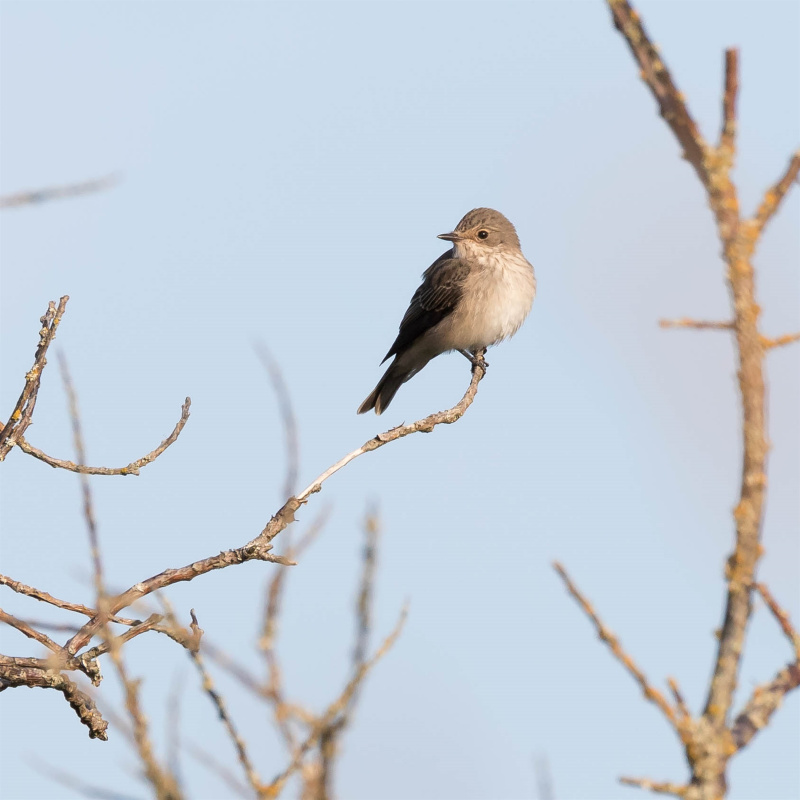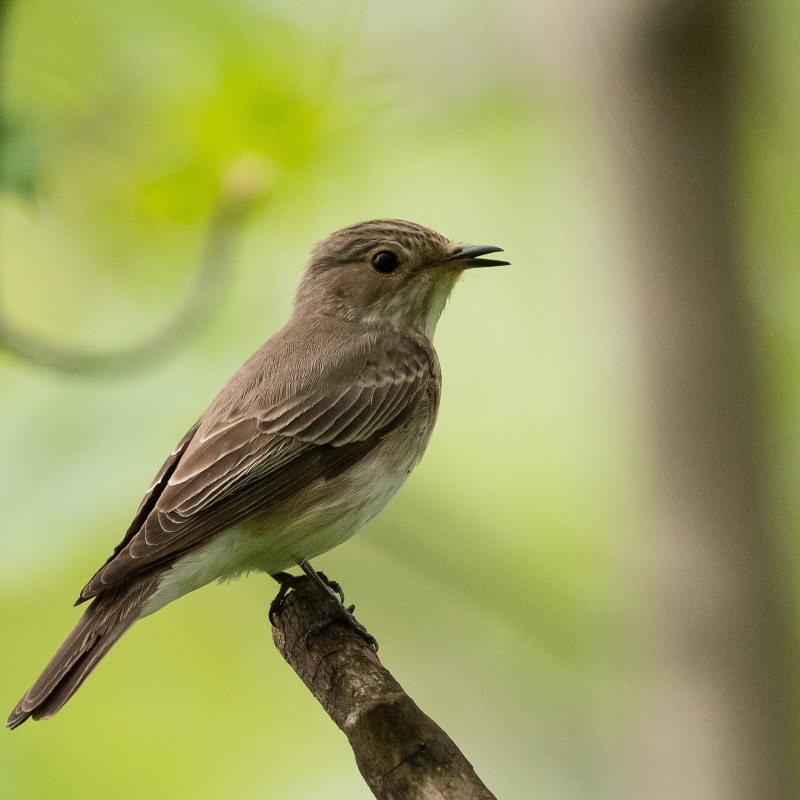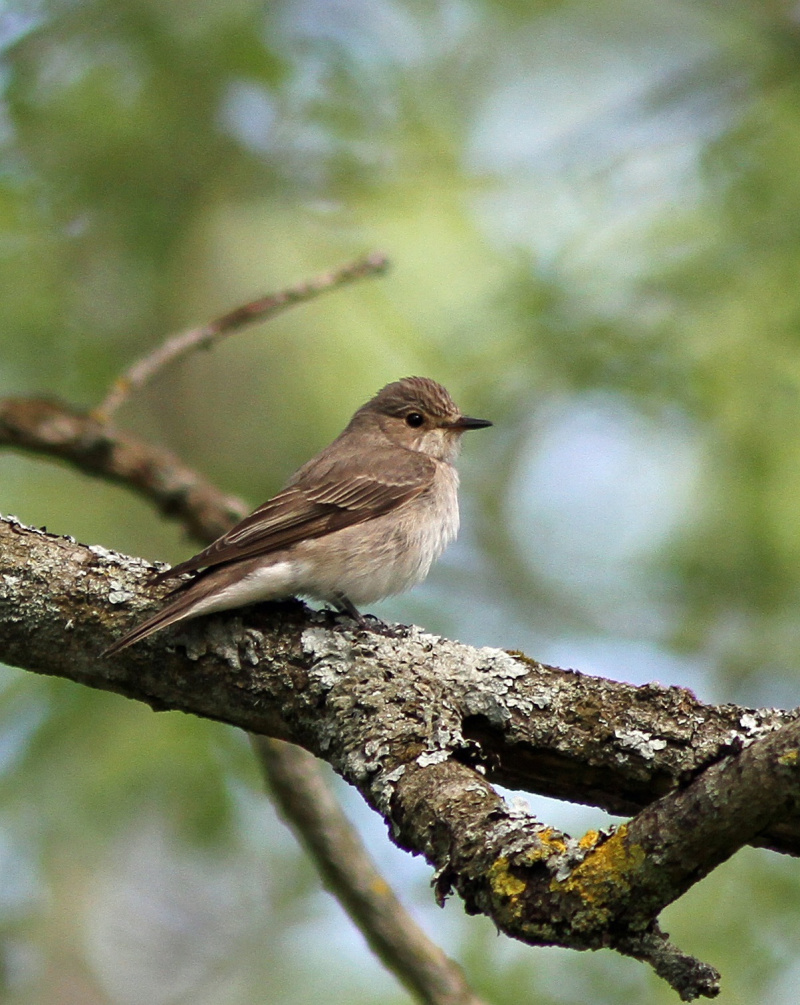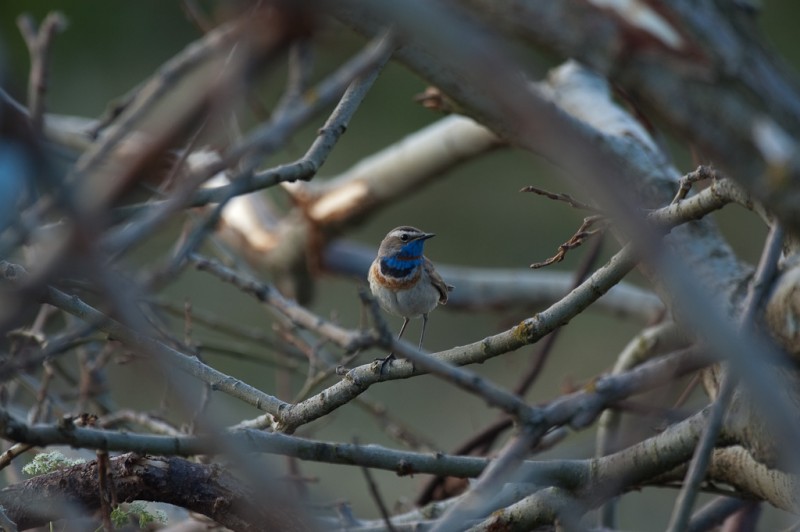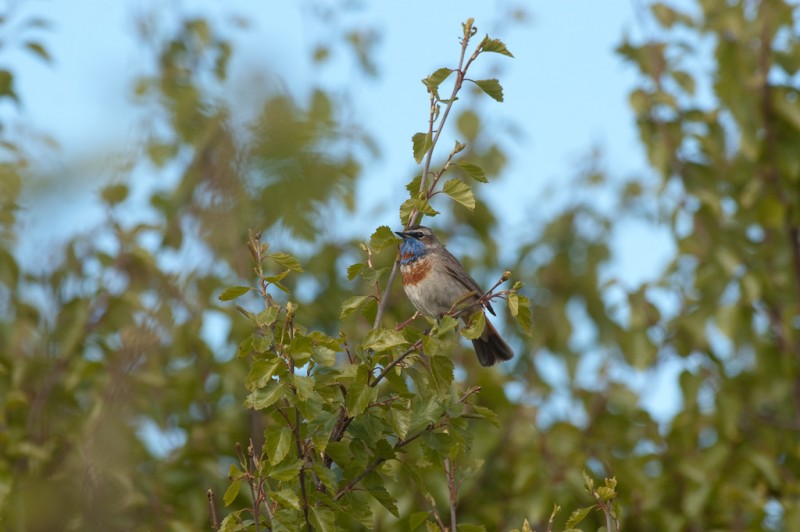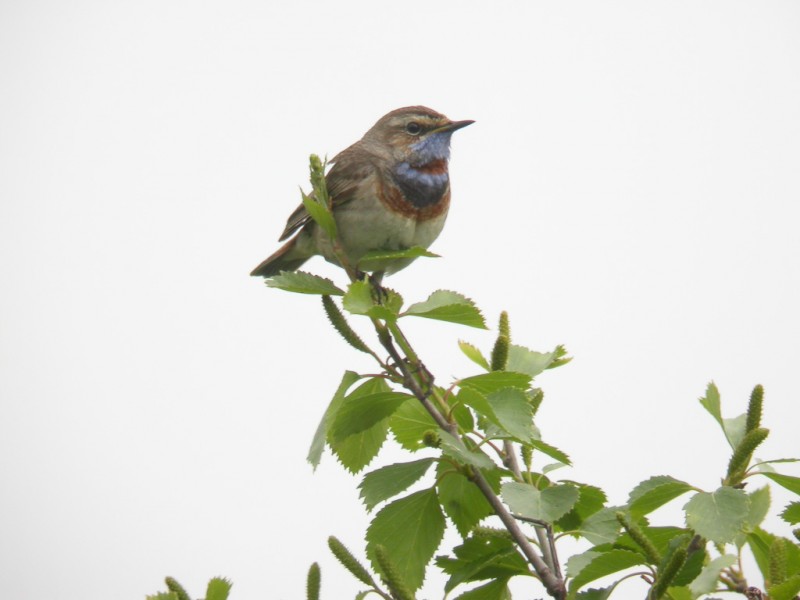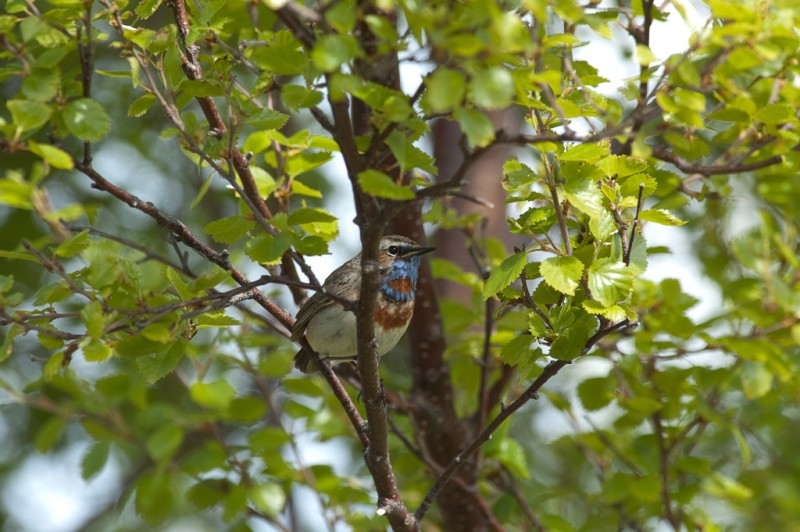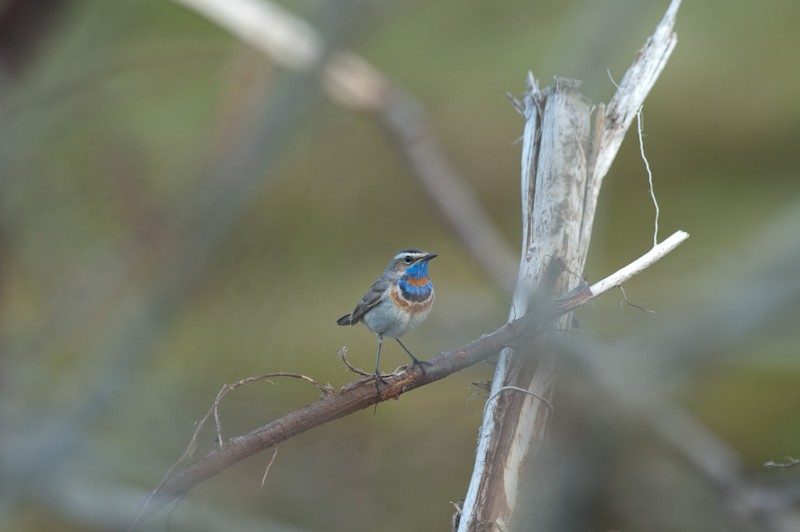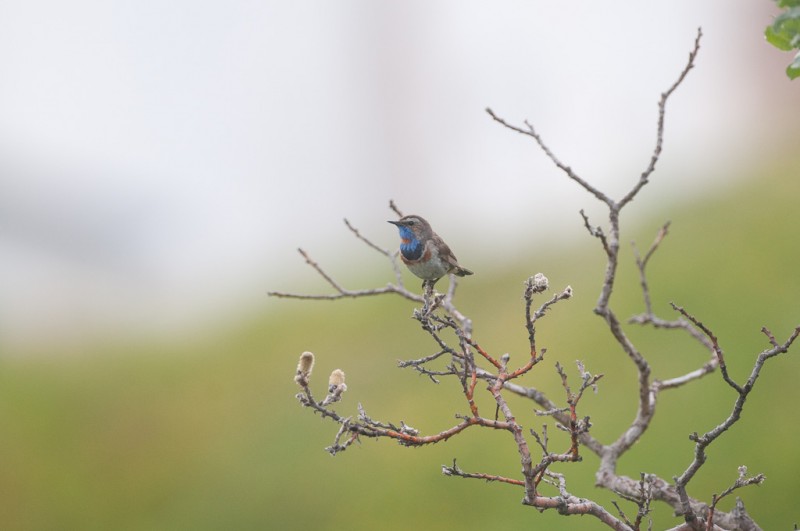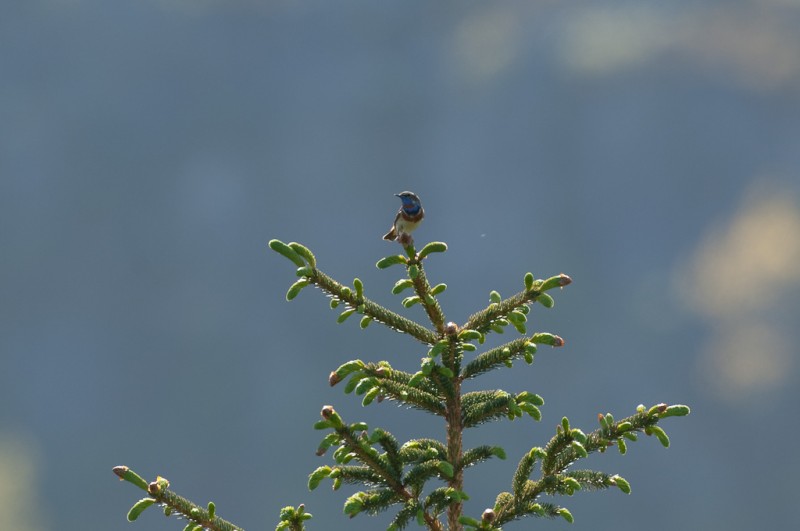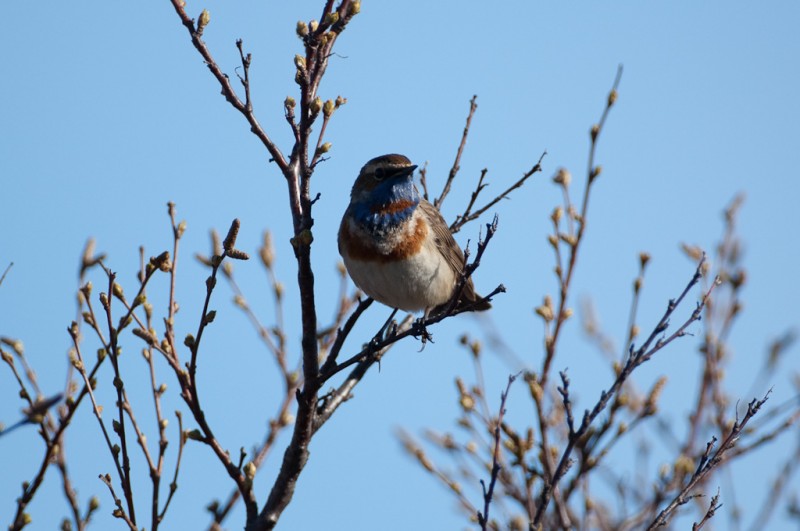Spotted Flycatcher (Muscicapa striata)
Bluethroat (Luscinia svecica)
Largest flycatcher in covered area. Easily overlooked bird with greyish brown upperparts and pale underparts. Crown and chest speckled. Bill and legs black. Slim white fringes to flight feathers and greater coverts. Body, wings and bill longer than in Pied Flycatcher, leaving a more elongated impression. Erect posture. Behaviour similar to congeners, with rapid darts and frequent hovering when hunting insects. Flicks tail and wings while perched.
Sound:The discreet calls often goes unnoticed. Most calls high pitched with a buzzing, "electric" timbre. Alarm call a sharp, drawn "tzreeeee-check", with the second syllable abruptly clipping the sound. Song a primitive, slow series of various buzzing and very high pitched sounds. No recurring phrases.
Song:
Distribution:
Xeno-canto: map
Ecology:Birdlife ecology
Links:
Observation.org Latest observations
Image search Flickr NB! May give other species
CCMale unmistakable. Blue throat with rufous red or white center, white supercilium and rufous base of outer tail feathers. Female lacking, or having just a partially blue throat. Female and juveniles could be confused with Redstart because of the rufous tail, but note its dark, bold trailing edge and center. An elegant and fairly long-legged chat that often flicks its wings and cocks its tail.
Sound:Song: Structure slightly similar to Nightingale, but tone much thinner and less full-bodied. A good impersonator and various imitations are interwoven among metallic, ringing sounds to form a complex, intriguing song. Call: "pju-check". Double syllable starting as a descending whistle, and ending on a short "check".
Song:
Distribution:
Wikipedia: map (se also Xeno-canto below)
Ecology:Birdlife ecology
Links:
Observation.org Latest observations
Image search Flickr NB! May give other species
CC
 English
English Albanian
Albanian
 Armenian
Armenian
 Bulgarian
Bulgarian
 Catalan
Catalan
 Croatian
Croatian
 Czech
Czech
 Danish
Danish
 Dutch
Dutch
 Finnish
Finnish
 French
French
 Georgian
Georgian
 German
German
 Greek
Greek
 Hungarian
Hungarian
 Italian
Italian
 Latvian
Latvian
 Lithuanian
Lithuanian
 Macedonian
Macedonian
 Norwegian
Norwegian
 Polish
Polish
 Portuguese
Portuguese
 Romanian
Romanian
 Russian
Russian
 Sami : Lule sami
Sami : Lule sami
 Sami : North sami
Sami : North sami
 Sami : South sami
Sami : South sami
 Scientific names
Scientific names
 Serbian
Serbian
 Spanish
Spanish
 Swedish
Swedish
 Ukrainian
Ukrainian


